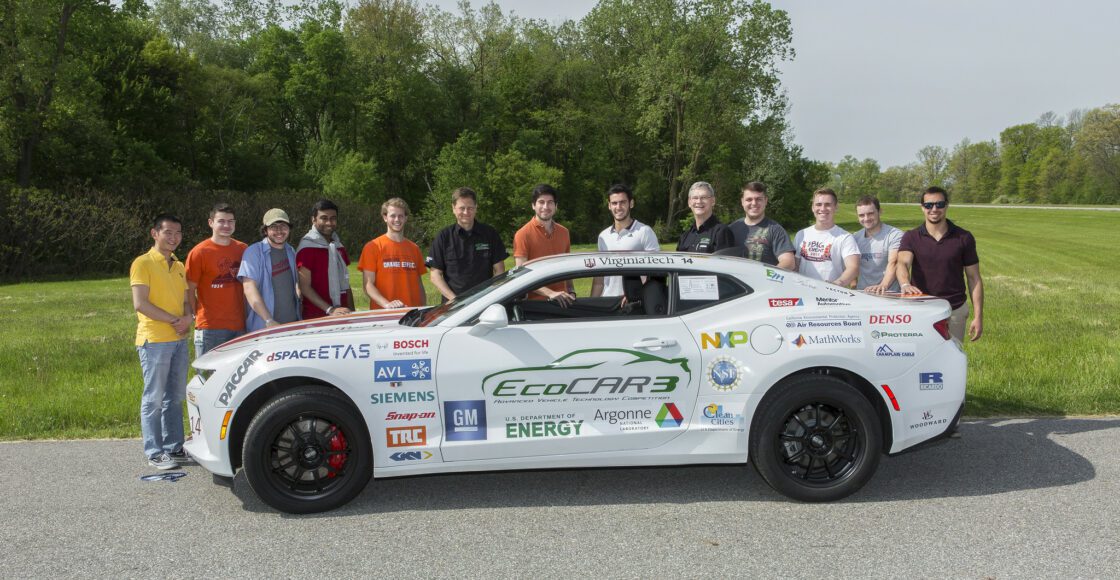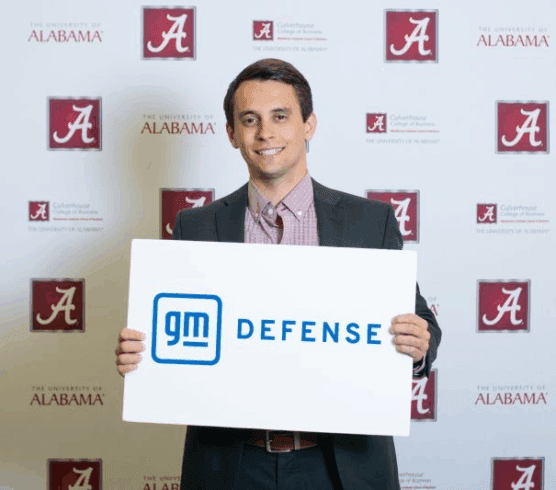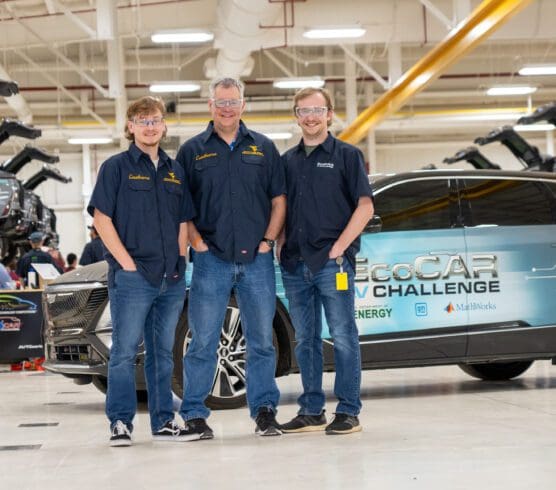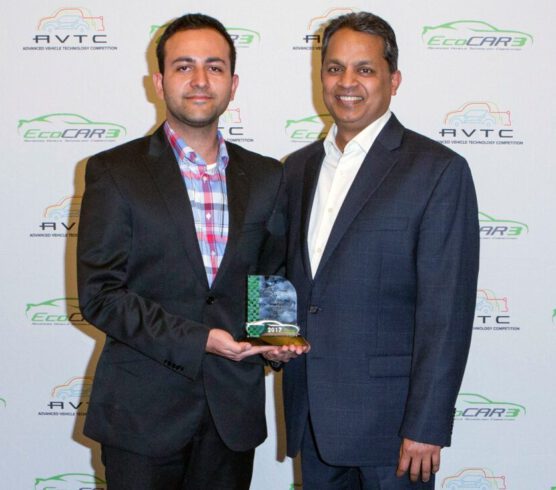Mike Duoba has a long-standing history with the Advance Vehicle Technology Competitions (AVTCs), dating back to his start in 1991 when he was the co-lead in the Natural Gas Vehicle challenge as an undergraduate student at the Illinois Institute of Technology.
“It allowed you to meet a lot of people and get exposed to a lot of technology very quickly,” he said.
Mike continued his run with the AVTCs shortly after he was hired by the Argonne National Laboratory in 1993 to run the student competitions. “I had to take the best ideas from all over the competitions and put them all into one format,” he said. “I kind of developed a scoring strategy that allowed the teams to score relative weights without them being too bunched up or too spread out. Since then we’ve always had hybrids or plug-in hybrids, so every time they refine their rules, they’re still based on the original rules set that I put together.”
He later assumed the role of lead technical rules writer in 1996 for FutureCar. “I also did the safety inspections and all things related to the technical aspects,” he said.
Although Mike is testing and analyzing advance vehicles at Argonne, he is still very much involved in the AVTCs. He’s currently focusing on test standards for current plug-in hybrids.
“I served as a chair of that taskforce to come up with the test procedure to accurately characterize these vehicles,” he said. “Plug-in hybrids are actually a very difficult car to test, and I was involved in the early procedure development.”
Mike said that he finds the AVTCs to be extremely important and beneficial to students looking to become leaders in the automotive industry. “When they get recruited out into the real world, they can hit the ground running and usually those are the leaders we see a decade later running the show. They had an early start and really understand what’s going on with technology,” he said.
As for advanced technology vehicles, Mike is certain they’re the next big thing. “I think that we’re at a transition phase where these advanced vehicles are going from research projects to mainstream technology, and that’s really where they’re going to make their impact.”
Watch Mike through the years as a student to now leading research engineering at Argonne:




